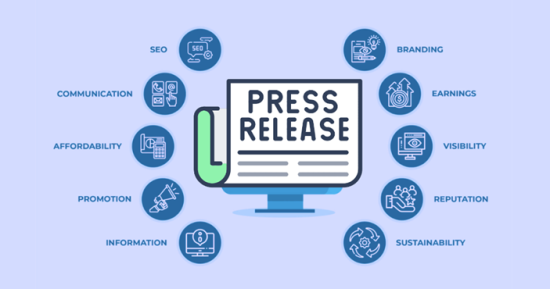
Think of your business like a puzzle where every piece has to fit just right. Now, imagine someone carefully arranging and understanding these parts. That’s what a business analyst does. They work at the middle of IT and business, checking and improving data to make products better and services smoother.
This job is not just about knowing what does a business analyst do. It’s also about how they bring change. They figure out ways to make a business more money or spend less. They use their skills to turn technology’s potential into real steps forward.
As companies change in a fast-moving world, the role of a business analyst is key. They keep up with new tech and market trends. They don’t just follow rules; they lead changes that help businesses grow smarter.
Key Takeaways
- Dive into the multidimensional role business analysts play in improving business operations.
- Discover how business analysts act as critical connectors between IT and business goals.
- Learn about the various tasks of a business analyst that make their career so dynamic.
- Understand the balance of hard and soft skills required in business analysis.
- Grasp the significance of business analysts in facilitating data-driven decision-making and systematic change.
The Role of a Business Analyst in Modern Business

The business analyst has a key job as the business world changes. They work to connect information technology (IT) with business. This makes businesses work better. They also help the business change to get better results from their IT investments.
Acting as Agents of Change
Business analysts play a big part in making and applying changes in a company. They shape these changes to meet new market needs. Their work aims for long-lasting success. They help their company change wisely, keeping future needs in mind.
Straddling Between IT and Business
Business analyst work includes making IT and business work smoothly together. They ensure tech changes meet important business goals. Whether it’s updating old systems or introducing new tech, they make sure it all fits.
Business analysts work with many different projects, goals, and tech tools. This gives them a special chance to guide their company’s use of new tech and improve how things are done.
In a day’s work, they might look at data, help set up new systems, and teach team members how to use new tech well.
| Task | Responsibility | Outcome |
|---|---|---|
| Data Analysis | Identify patterns, trends, and opportunities | Informed decision-making |
| System Implementation | Align new technologies with business goals | Enhanced operational efficiency |
| Stakeholder Communication | Facilitate clear and effective communication between IT and business units | Aligned and coherent business strategies |
| Process Improvement | Optimize existing business processes | Reduced costs and increased productivity |
In the end, business analysts greatly help companies get the most from their IT and work smoother. They drive important changes and connect IT with business. This keeps companies flexible and ready for the future.
What Does a Business Analyst Do?
Ever wonder what a business analyst does? They’re crucial in improving how companies make decisions. Their key goals are making business choices better and more efficient. This job mixes strategic planning with detailed data work.
A business analyst’s job isn’t just about crunching numbers. They handle projects, design how work should flow, and check if ideas make sense for the budget. They’re a bridge between what a company needs to do and how technology can help achieve those goals.
What exactly does a business analyst do each day? Here’s a hint:
- They look closely at a company to find out what needs to change or what’s missing.
- They help plan budgets and predict future needs to keep the company financially strong.
- They closely watch how things are running to spot problems early and fix them.
- They tell the boss how well things are going.
- And they make sure a project meets everyone’s needs.
This role shows how important business analysts are. They make sure new technology doesn’t just work well but also helps the company. They ensure it’s a smart investment.
Making sure everyone understands what needs to be done is also key. They ensure that what the team delivers matches what the company really wants. It’s about finding a balance so projects succeed and everyone is happy.
Business analysts need to be experts in both tech and business. They juggle what’s possible with what’s practical. This skill makes sure projects are doable and bring real benefit to the company.
Essential Responsibilities of a Business Analyst
The responsibilities of a business analyst are key to connecting IT solutions with business needs. You need a mix of analysis, management, and communication skills. This ensures projects meet their goals effectively.
Engaging with stakeholders is a major part of a business analyst’s job. You must understand what they need and turn that into IT plans. Your work with detailed documents and careful analysis helps create technical plans that fit business aims.
Business analyst responsibilities also include overseeing projects from start to finish. You check for quality, follow the progress, and change plans if needed. This makes sure the project stays on track with evolving needs.
Here’s a close look at a Business Analyst’s duties at various project stages:
| Project Stage | Responsibility |
|---|---|
| Initiation | Identify stakeholder needs and business objectives |
| Planning | Document and analyze requirements, propose timelines |
| Execution | Translate needs into technical specifications, manage communications |
| Monitoring | Track progress, adjust scopes, and report to management |
| Closure | Ensure deliverables meet quality standards and stakeholder satisfaction |
You’ll also be looking out for risks and finding ways to improve processes. These tasks help projects finish well and make the organization run better. Embracing these roles makes you a central figure in your group, linking IT with business success.
Skills Needed for a Successful Business Analyst Career

Starting a career as a business analyst needs a mix of technical and soft skills. These are crucial for success in this fast-changing field. Whether you’re new or want to boost your skills, mastering these abilities is key to improving your professional toolbox.
Technical Proficiency and Analytical Mindset
Being a business analyst requires being tech-savvy and having a sharp mind for analysis. You use technology to understand data, making you essential in any job. Analytical thinking helps you break down problems and find solutions with solid facts.
Communication and Interpersonal Abilities
Being a good communicator is vital. Business analysts often bridge the gap between IT and business needs. This means explaining complex ideas clearly to people with different levels of tech knowledge. Good people skills help in building strong relationships and improving teamwork across departments.
| Skills Category | Examples |
|---|---|
| Technical Skills | Data Analysis, Process Modelling, Requirements Engineering |
| Analytical Skills | Stakeholder Analysis, Cost-Benefit Analysis, Advanced Analytics |
| Communication Skills | Stakeholder Engagement, Presentation Abilities, Negotiation |
| Interpersonal Skills | Team Collaboration, Relationship Management, Empathy |
To be a great business analyst, you must focus on developing these skills. The ability to analyze data accurately, along with communicating effectively, is crucial. These skills aren’t just for personal success. They also help achieve big goals for the companies you work for.
The Business Analyst’s Toolkit: Software and Systems
As a business analyst, knowing your tools is crucial for success. Skills with Excel, SQL, and Google Analytics are essential. They help manage various tasks effectively.
Excel is great for organizing data and making informative charts. You’ll often work with big sets of data to spot trends. SQL helps you manage and query data in databases accurately.
Google Analytics is key for tracking website traffic. It helps understand how well we’re doing online. This is vital for improving our digital performance.
| Tool | Primary Use | Importance to Business Analysts |
|---|---|---|
| Microsoft Excel | Data sorting, graph creation | Essential for daily data analysis tasks |
| SQL | Data management in databases | Crucial for handling expansive and complex data sets |
| Google Analytics | Web analytics and traffic analysis | Vital for digital business strategies and understanding user engagement |
Knowing these tools makes you a better business analyst. You can offer smart, data-based solutions. This ensures your advice is backed by solid evidence and analysis.
Understanding the Business Analyst’s Workplace: Sectors and Domains

Looking into a business analyst career means understanding varied work settings. These experts work in many sectors. They adjust their skills for private businesses and public groups. What they do changes based on where they work.
Private Sector and Public Organizations
In private companies, business analysts push for better efficiency. They aim to improve profits and compete better in the market. For those in public service, the goal is to do more with less. They focus on making services better without spending too much. Both settings offer chances to learn that shape a business analyst’s problem-solving and planning.
Specialized Fields: Cybersecurity and Agile Methodologies
Cybersecurity skills are now a must as the online world faces more dangers. Business analysts in this area look for weak points and suggest fixes. They work to keep data safe and follow laws closely. There’s also a growing trend in using Agile ways to manage projects. It involves being quick to adapt and working closely with others in challenging settings.
| Sector | Focus Area | Impact on Practice |
|---|---|---|
| Private Sector | Efficiency & Profitability | Enhanced resource management, strategic planning |
| Public Organizations | Cost Effectiveness | Improved public service delivery, budget adherence |
| Cybersecurity | Data Protection | Security improvements, compliance with regulations |
| Agile Projects | Project Flexibility | Better stakeholder collaboration, iterative refinements |
Real World Applications: Business Analyst Impact on Operations
Exploring the business analyst responsibilities shows their impact in real-world settings. They use data to boost operational efficiency. This is key across sectors like healthcare and tech. Through their work, effective business strategies are put into action.
Business analysts find what’s not working and suggest changes. These changes help create a better place for growth and more work output. They use their analytical skills to save money and open doors to new chances that meet goals.
By applying robust problem-solving skills and thorough data analytics, business analysts facilitate smarter, data-driven decisions that propel companies forward.
But that’s not all. Business analysts also play a part in the action. They make sure changes actually happen. This ensures project benefits are achieved, leading to lasting wins.
| Area of Impact | Tactics Used | Outcome |
|---|---|---|
| Process Optimization | Workflow Analysis, Lean Management | Reduced Operational Costs, Enhanced Efficiency |
| New Opportunities Identification | Market Analysis, Competitive Analysis | New Revenue Streams, Strategic Partnerships |
| Decision Making | Data Modelling, Predictive Analytics | Informed Strategic Moves, Risk Mitigation |
Summing up the real-world applications of business analysis, we find a close link between their work and better operations. Their knowledge of tech and organizational structures helps solve tough problems. This highlights their crucial part in running modern businesses.
From Qualifications to Career Advancement
Starting on the path of a business analyst requires both formal education and constant skill growth. It’s important to know how your initial qualifications can lead to long-term success. This gives a straight line for those wanting to excel in this field.
Educational Pathways and Professional Certifications
To begin, a bachelor’s degree in business administration or something similar is crucial. Adding business analyst certifications greatly boosts how professional you appear. These certifications come from respected places like the International Institute of Business Analysis (IIBA) and the Project Management Institute (PMI).
They show you’re serious about learning and career growth. Also, they prove your continued devotion to being a top professional.
Advanced Training and Continued Learning
The business analysis world always changes. So, it’s a must to stay up-to-date by joining advanced training and workshops. For those aiming for higher positions, specialized education in areas like cybersecurity or business analytics helps a lot. This kind of learning also includes hands-on boot camps, perfect for setting you up for leadership.
Becoming a successful business analyst isn’t only about what you know. It’s also about who you know. Engaging with professional groups and networking can open big doors for your career. It also offers insights that can take you far in the industry.
Financial Prospects: Business Analyst Salary and Job Outlook
A business analyst career is not just impactful within companies today. It also offers strong financial prospects. The business analyst salary grows over time, shaped by where you work, your skills, and experience. Working in growing fields like cybersecurity can really boost your salary.
The US Bureau of Labor Statistics sees a bright future for business analysts. The field is key to making smart business choices based on data. As companies keep up with new tech, the need for sharp business analysts will go up.
| Experience Level | Average Salary |
|---|---|
| Entry-Level | $60,400 |
| Experienced | $79,000+ |
To earn more and move up in your career, get certified in important areas and keep learning. Areas like data governance and using Agile methods offer good chances for growth.
If you’re thinking about moving up as a business analyst, focus on learning and certifications. This will help you reach your career and money goals. The bright job outlook for business analysts shows their strong position in the business tech world.
Ever wondered, “What does a business analyst do?” They blend technology with business strategy. Their job is to improve how companies work. This makes your work as a business analyst very important.
You might make operations smoother, improve how customers feel, or help companies make smarter choices with data. It’s an exciting job that needs various skills. But, it offers big rewards in terms of job satisfaction and pay.
The business analysis field is growing, making it a great time to be a part of it. Getting the right education and experience is key. But, developing your skills in tech, analysis, and how you work with others is what really boosts your career.
FAQs on Business Analyst
What does a business analyst do on a daily basis?
A business analyst typically starts their day by reviewing data and reports to assess business processes and performance. They spend significant time collaborating with stakeholders to understand requirements and identify improvement opportunities. Additionally, they develop and propose solutions, often documenting specifications and overseeing the implementation of these solutions to ensure they meet business needs
What does a business analyst do in software development?
In software development, a business analyst acts as a bridge between stakeholders and the development team, ensuring that the software solutions meet business needs and requirements. They gather and document detailed functional and technical requirements, often creating user stories and scenarios that guide the development process. Additionally, the business analyst participates in testing and quality assurance processes to ensure the final product aligns with the specified requirements and performs as expected.






